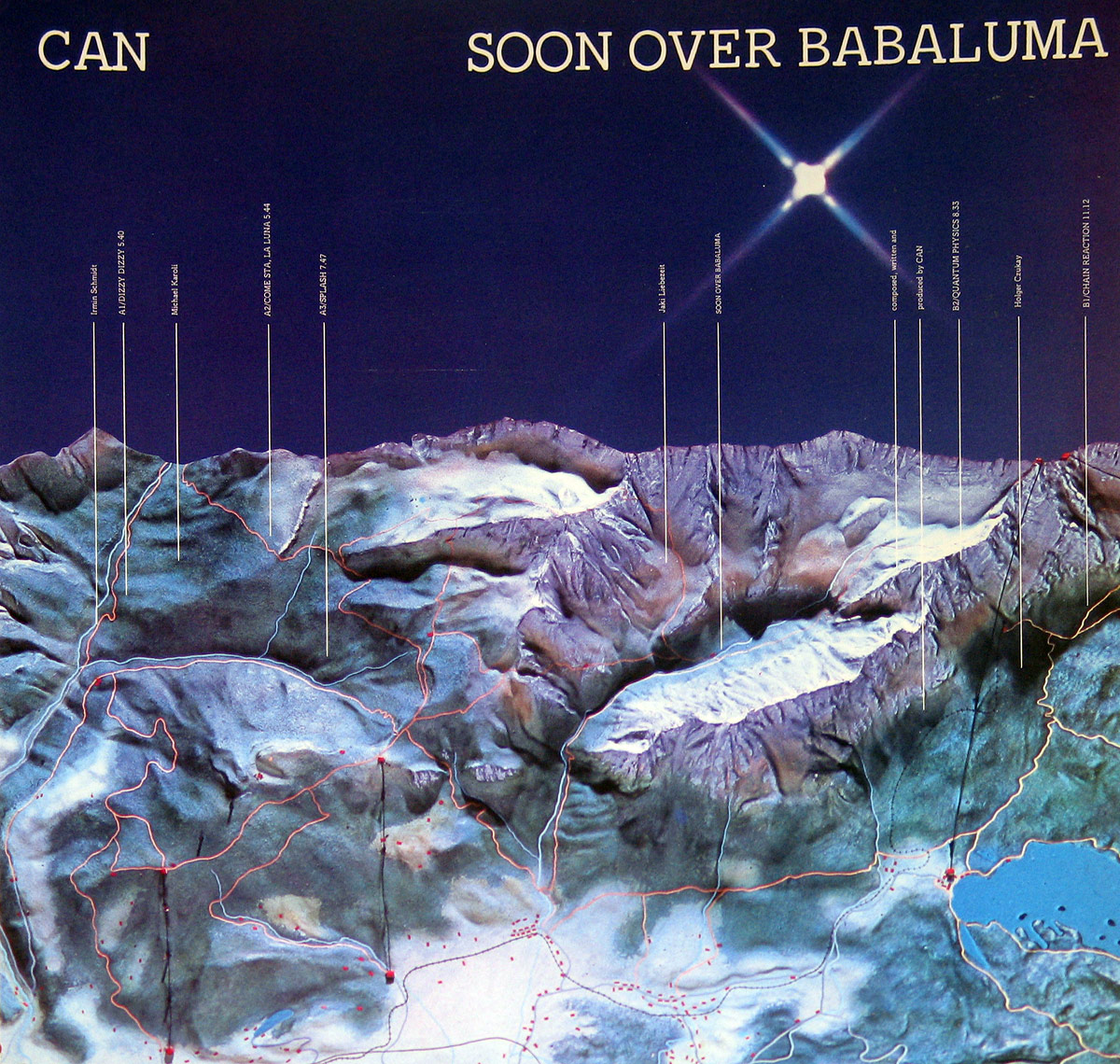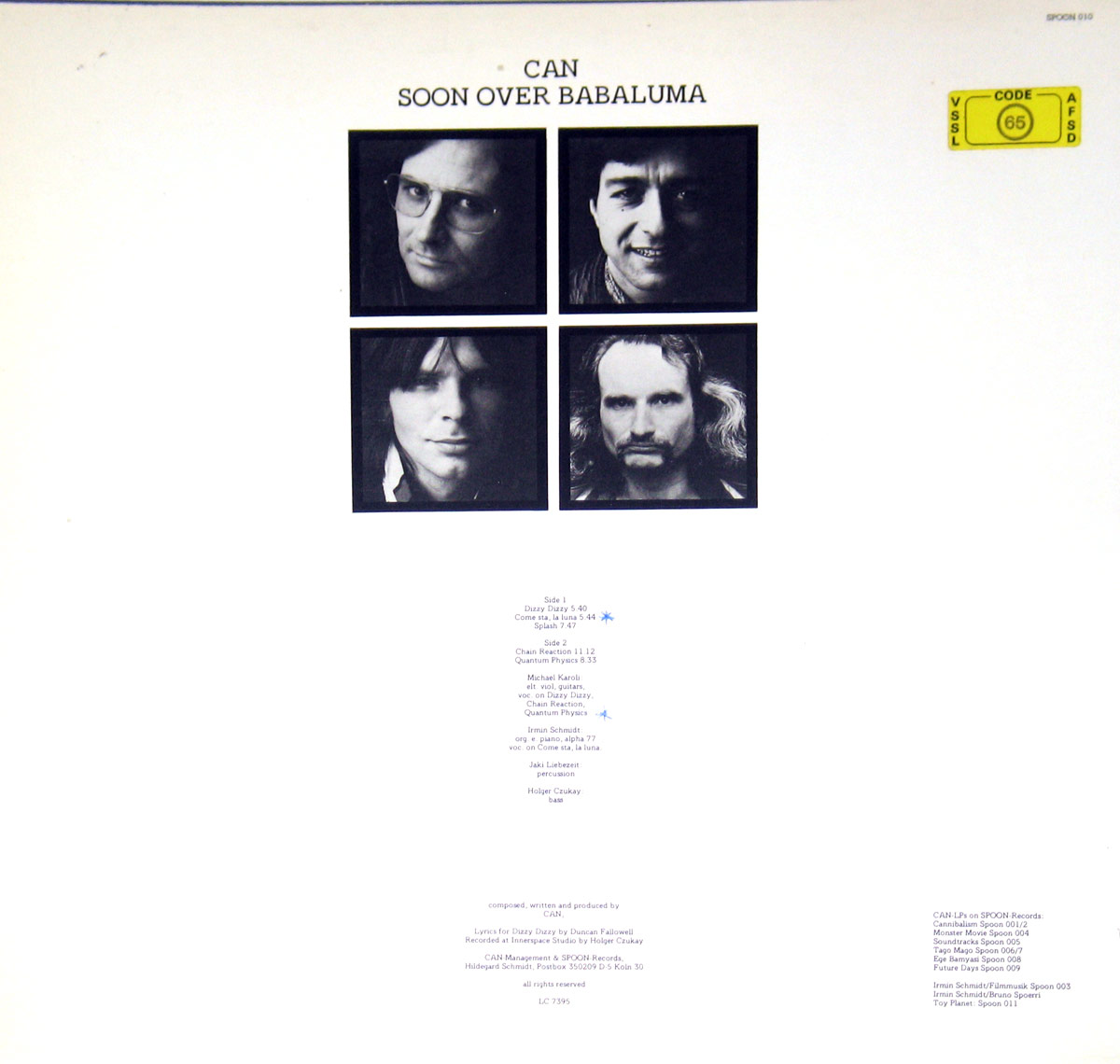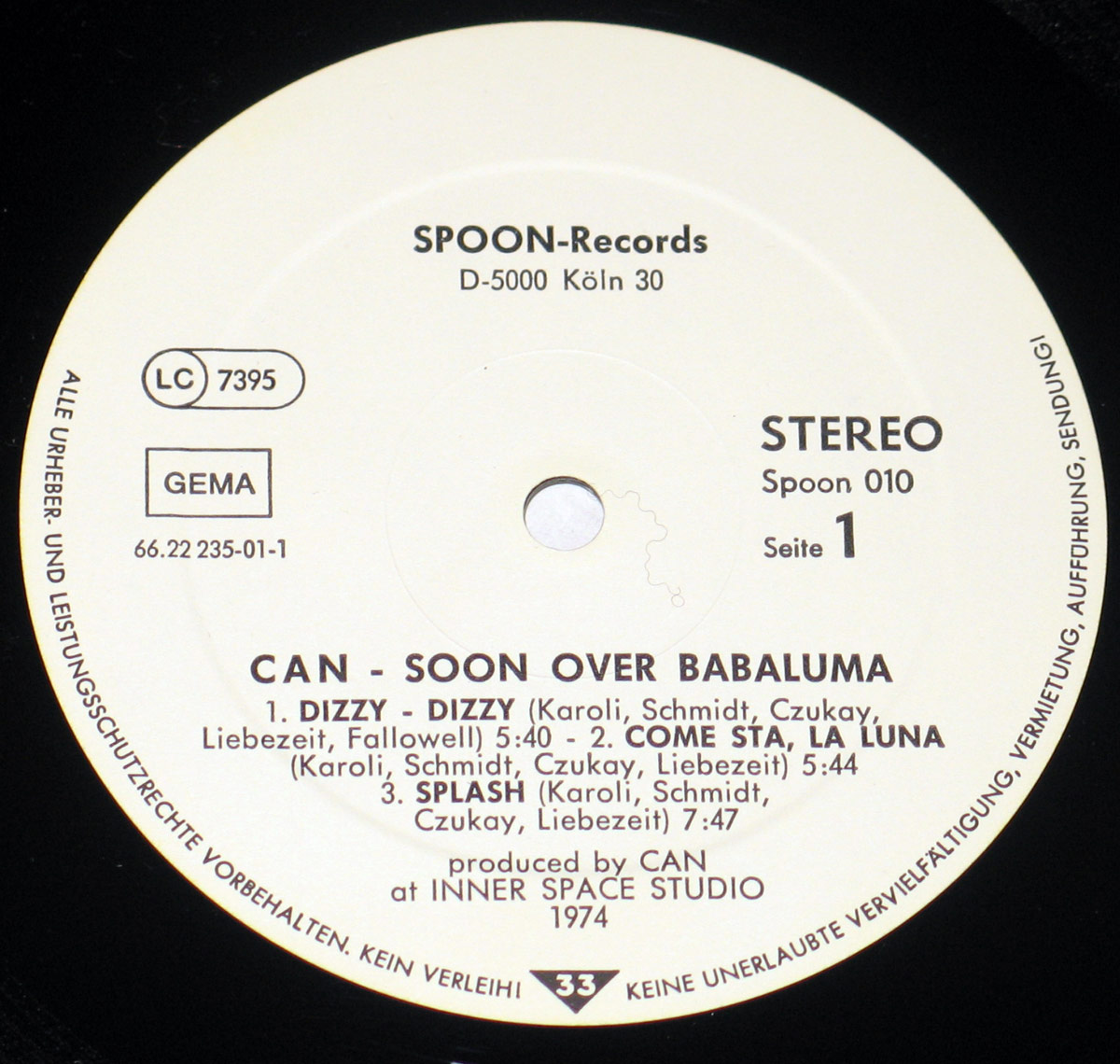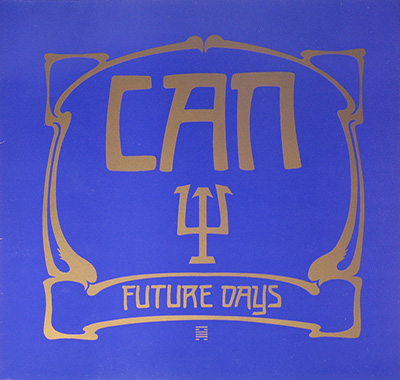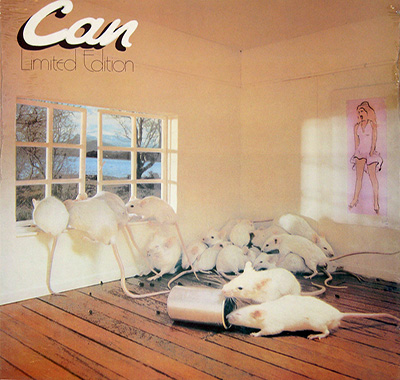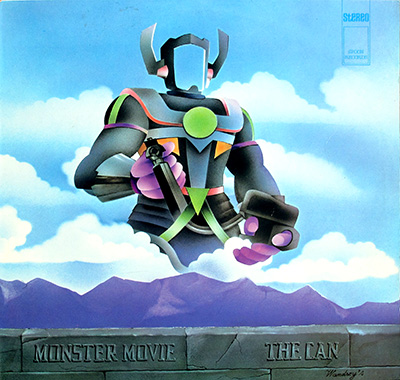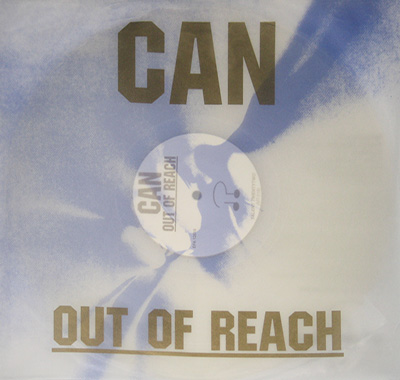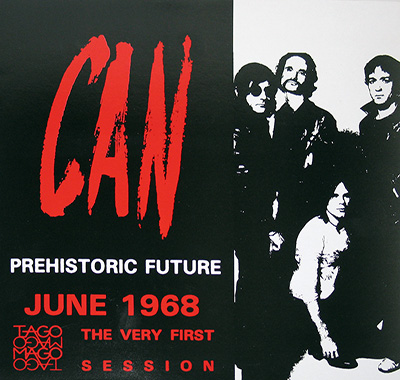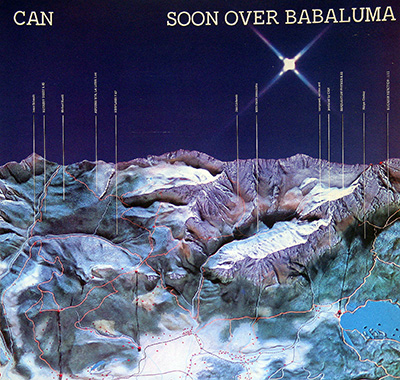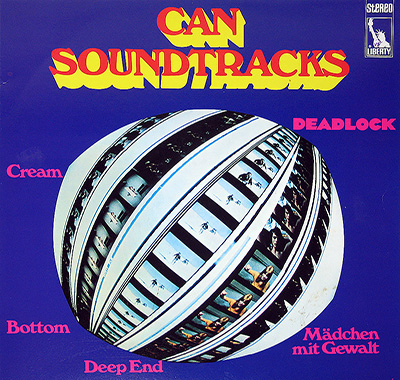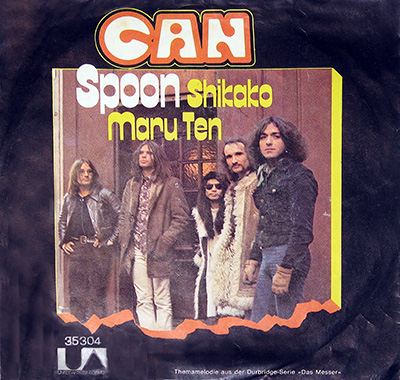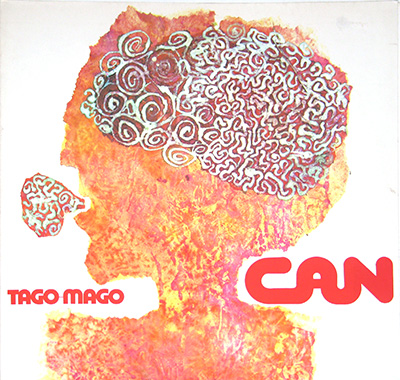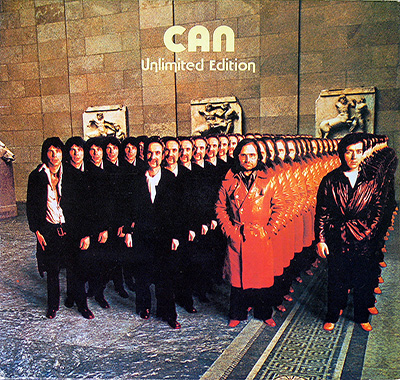Record Label Close-Up – CAN: Soon Over Babaluma (Side 1)
This is a close-up image of the white label from Side 1 of CAN’s *Soon Over Babaluma* vinyl LP. The label is minimalist, with black text printed on an off-white matte surface, centrally pierced by the spindle hole, surrounded by the classic black vinyl edge.
At the top, the label displays the record company’s name: SPOON-Records, with its address listed as "D-5000 Köln 30" just beneath it. To the right is the text STEREO, followed by the catalog number Spoon 010, and the side indicator Seite 1 (German for "Side 1").
On the left are legal and rights indicators: the rights society code GEMA, the label code LC 7395 inside a double-circled box, and the matrix number 66.22 235-01-1 underneath.
The center features the album title CAN – SOON OVER BABALUMA in bold, followed by the tracklist for Side 1:
1. Dizzy Dizzy (Karoli, Schmidt, Czukay, Liebezeit, Fallowell) – 5:40
2. Come Sta, La Luna (Karoli, Schmidt, Czukay, Liebezeit) – 5:44
3. Splash (Karoli, Schmidt, Czukay, Liebezeit) – 7:47
Below the tracklist, production credits are noted: Produced by CAN at INNER SPACE STUDIO, 1974.
Along the outer ring of the label are German copyright warnings printed in a circular orientation: ALLE URHEBER- UND LEISTUNGSSCHUTZRECHTE VORBEHALTEN. KEINE UNERLAUBTE VERVIELFÄLTIGUNG, VERMIETUNG, AUFFÜHRUNG, SENDUNG! KEIN VERLEIH! — translating to “All rights of the producer and owner of the recorded work reserved. Unauthorized copying, hiring, lending, public performance and broadcasting prohibited.”
Centered at the bottom is a small triangle with 33 printed inside, indicating the record plays at 33 RPM.
